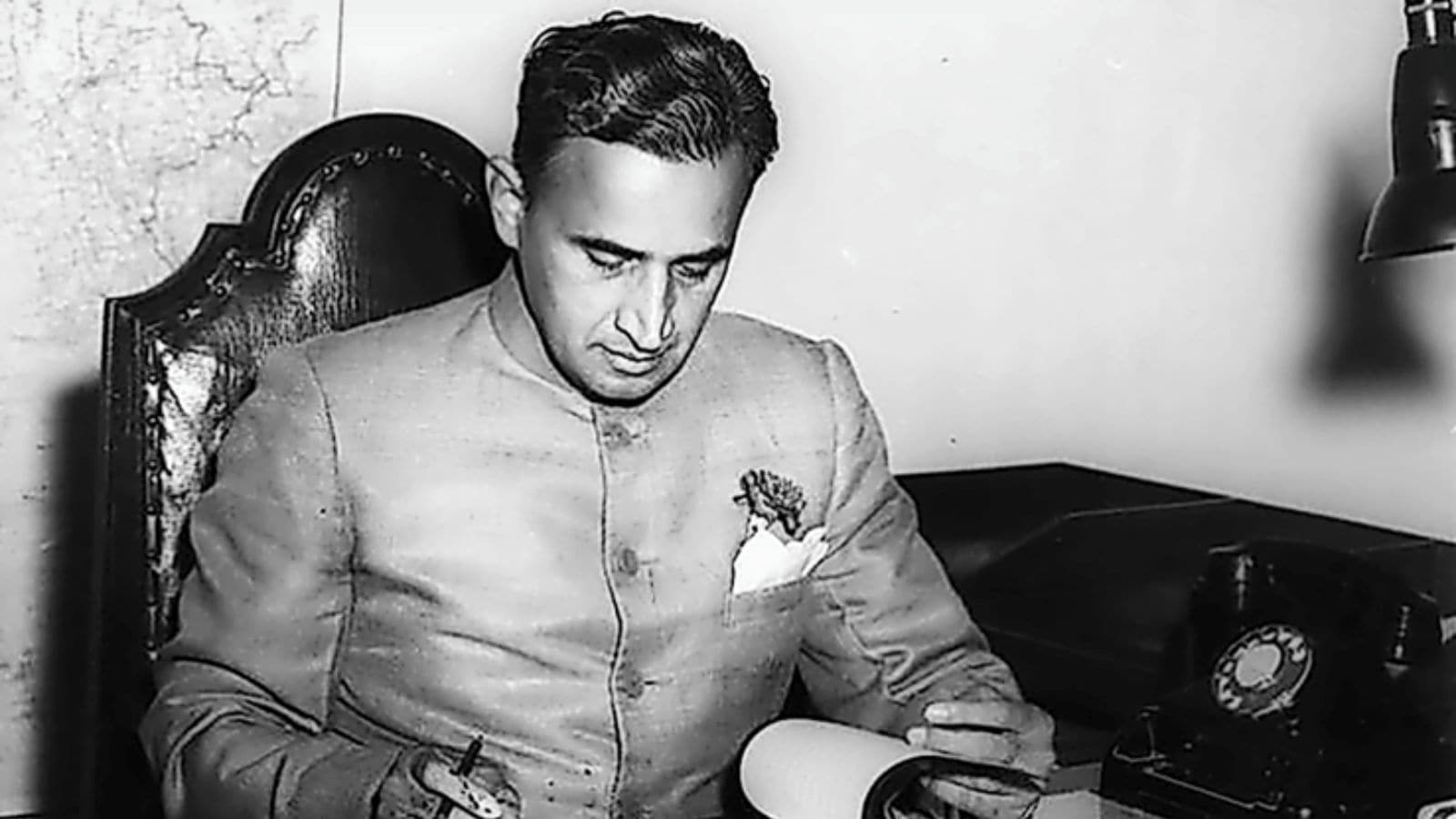Finance Minister Chintaman Dwarakanath Deshmukh and Bombay Chief Minister Morarji Ranchhodji Desai had a wildly different day on February 29, 1956. Deshmukh spent his day in Delhi, closeted with officials. A former civil servant and the first Indian to become the Reserve Bank of India (RBI) Governor, he became Finance Minister in 1950. As the country’s Finance Minister, Deshmukh piloted five Budgets. On the evening of February 29, 1956, he presented the sixth one before his Lok Sabha colleagues.
In Bombay, Desai had his hands full of well-wishers streaming into his residence to wish him on his 60th birthday. One of the visitors was Deshmukh’s colleague
Story continues below this ad
M C Shah, the Minister of Revenue and Civil Expenditure. Later that day, Desai dropped a bombshell on Shah, telling him that the Government of India’s Budget had been leaked. The 1956 leak was extensively discussed in Parliament and led to changes in the Budget printing protocols.
India has a long history of protecting the secrecy of government documents. In 1889, our colonial administrators made the first law to criminalise the unauthorised disclosure of official papers. The Budget documents present an interesting confidentiality problem. The government wants to keep the Budget a secret until the Finance Minister presents it in the Lok Sabha. Among other things, it contains tax proposals whose prior knowledge could give people an undue advantage. Immediately afterwards, the government disseminates its contents widely to ensure tax collection per the new provisions.
This intertwined issue of secrecy and publicity arose in 1911, during King George V’s visit to India. The visit was a big deal, as no other monarch had visited India. A grand durbar was held in Delhi to celebrate the visit and the King’s coronation.
Story continues below this ad
Lord Hardinge, the Viceroy of India, was responsible for making the emperor’s visit successful. Hardinge was a 52-year-old Harrow and Cambridge-educated diplomat who highlighted his loyalty to the monarchy by naming his two sons after kings and his daughter after the King’s racehorse, who won the derby the year she was born.
At the durbar in Delhi, the King was also going to make key announcements, such as shifting the capital from Calcutta (now Kolkata) to Delhi and reunifying Bengal. The government wanted these measures to be secret until the King gave his speech, and then they had to be given the widest publicity. Hardinge’s solution was to install a printing press manned by the necessary staff at the durbar site in advance. He made the required living arrangements for the printing staff and cordoned off the area with police so that nothing could go in or out of the durbar site.
This press then printed copies of the King’s announcement and placed them in sealed envelopes. The government staff distributed these envelopes immediately after the King finished his speech. After the capital of India was moved to Delhi, the government installed a printing press in the estate of the newly constructed Viceroy House (later called Rashtrapati Bhavan). The Budget leak of 1956 took place from this printing press.
But first, in 1936, the Budget speech was divided into two parts: Part A, which contained economic data and other information, and Part B, which contained the all-important tax proposals. In the 1940s, the Government of India Press in New Delhi printed Part A of the speech and the Finance Bill. The printing press in the Rashtrapati Bhavan estate was closer to the Finance Ministry’s office in North Block, making it the natural choice for printing the sensitive Part B with its tax proposals.
When Morarji Desai told M C Shah about the Budget leak, he also handed Shah a copy of the leaked tax proposals. On March 1, Shah told Finance Minister Deshmukh about the leak, who ordered an inquiry by the ministry’s officers. Upon completing the investigation on March 2, Deshmukh informed Home Minister Govind Ballabh Pant and offered his resignation to Prime Minister Jawaharlal Nehru a day later.
By this time, the news had spread, and Lok Sabha MPs demanded explanations from the government and sought a discussion on the House floor.
The copy of the Budget leak that Desai had given Shah had typographical errors. These led the investigating authorities to F X Jacobs, the general foreman of the printing press. Jacobs admitted that he had shared the proof copy of the tax proposals with Davinder Pal Chadha, a public relations officer in a Delhi-based company, who had agreed to pay him Rs 1,000.
most read
Chadha took the leaked documents to Bombay and sold them further. During the investigation, the police discovered that in 1955, Jacobs had told Chadha the tax proposals from memory, and Chadha had paid him for it. Roughly 10 days after the leak was discovered, the police arrested Jacobs, Chadha and others.
The leak overshadowed the 1956 Budget. During the discussion in Parliament, Deshmukh proposed printing the tax proposals within the Finance Ministry. Since then, the Budget has been prepared and printed in utmost secrecy. However, developments like the Goods and Services Tax (GST), which has replaced most indirect taxes, and the GST Council deciding the rates raise questions about the need for secrecy of the Budget. For Deshmukh, it was the last Budget that he presented. A few months later, he resigned from the Cabinet because of differences with Nehru on the States Reorganisation Bill.
The writer looks at issues through a legislative lens and works at PRS Legislative Research


